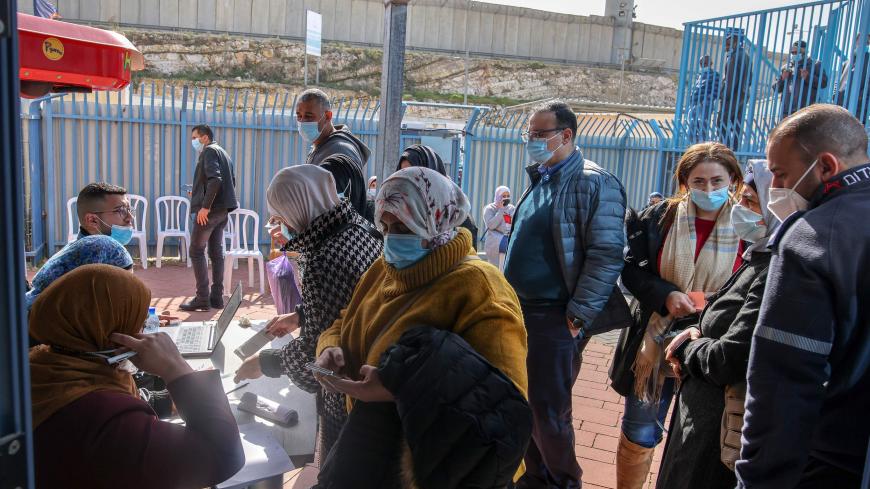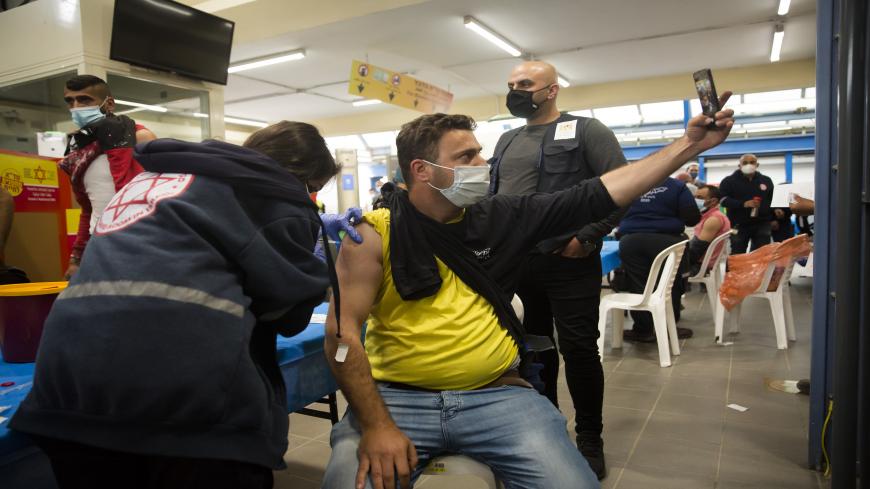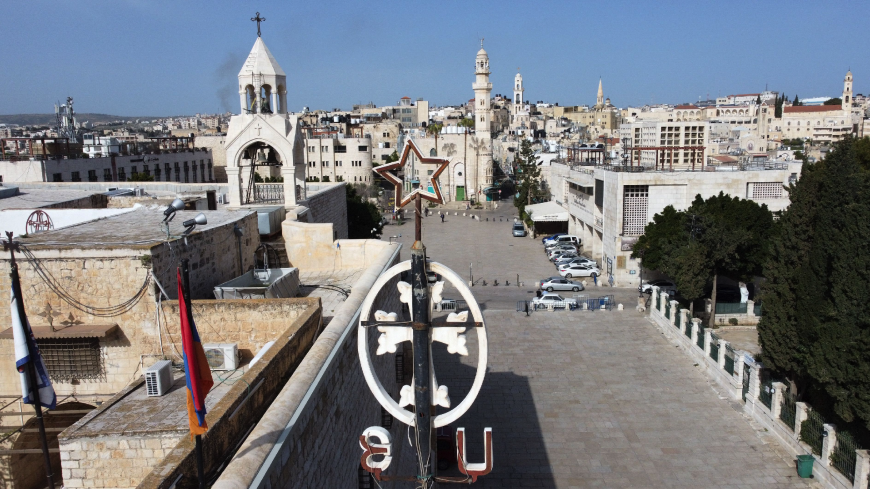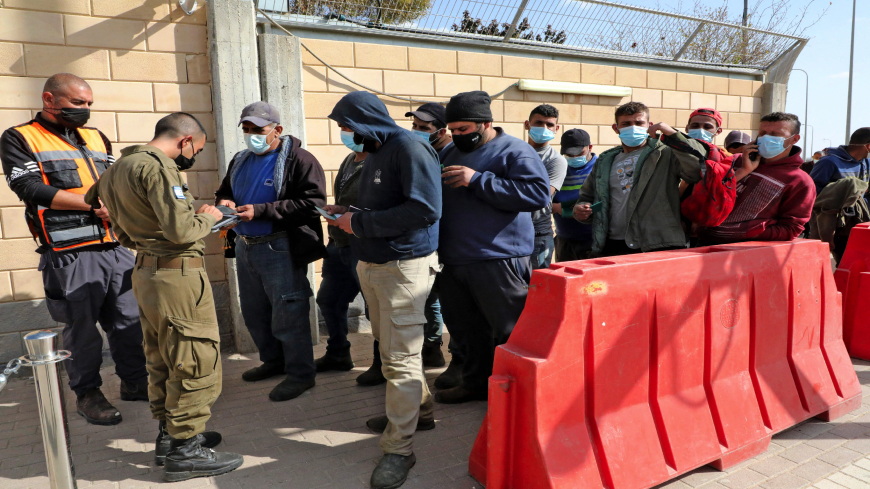![1231471153 A health worker arranges vials of the Pfizer-BioNtech COVID-19 vaccine at the Clalit Health Services in the Palestinian neighbourhood of Beit Hanina, in the Israeli-annexed east Jerusalem on March 2, 2021. (Photo by AHMAD GHARABLI / AFP) / The erroneous mention[s] appearing in the metadata of this photo by AHMAD GHARABLI has been modified in AFP systems in the following manner: [March 2] instead of [March 3]. Please immediately remove the erroneous mention from all your online services and delete it from yo](/sites/default/files/styles/article_hero_medium/public/almpics/2021/03/GettyImages-1231471153.jpg/GettyImages-1231471153.jpg?h=a5ae579a&itok=Fgm4Sy4n)
![1231471153 A health worker arranges vials of the Pfizer-BioNtech COVID-19 vaccine at the Clalit Health Services in the Palestinian neighbourhood of Beit Hanina, in the Israeli-annexed east Jerusalem on March 2, 2021. (Photo by AHMAD GHARABLI / AFP) / The erroneous mention[s] appearing in the metadata of this photo by AHMAD GHARABLI has been modified in AFP systems in the following manner: [March 2] instead of [March 3]. Please immediately remove the erroneous mention from all your online services and delete it from yo](/sites/default/files/styles/article_hero_medium/public/almpics/2021/03/GettyImages-1231471153.jpg/GettyImages-1231471153.jpg?h=a5ae579a&itok=Fgm4Sy4n)
Why AL-Monitor?
AL-Monitor is an award-winning media outlet covering the Middle East, valued for its independence, diversity and analysis. It is read widely by US, international and Middle East decision makers at the highest levels, as well as by media, thought and business leaders and academia.
Read by









Live news & notifications

Premier analysis of the Middle East

Live events & video

Specialized Newsletters

Big, exclusive interviews

ALM archives since 2012
![1231471153 A health worker arranges vials of the Pfizer-BioNtech COVID-19 vaccine at the Clalit Health Services in the Palestinian neighbourhood of Beit Hanina, in the Israeli-annexed east Jerusalem on March 2, 2021. (Photo by AHMAD GHARABLI / AFP) / The erroneous mention[s] appearing in the metadata of this photo by AHMAD GHARABLI has been modified in AFP systems in the following manner: [March 2] instead of [March 3]. Please immediately remove the erroneous mention from all your online services and delete it from yo](/sites/default/files/styles/article_hero_medium/public/almpics/2021/03/GettyImages-1231471153.jpg/GettyImages-1231471153.jpg?h=a5ae579a&itok=Fgm4Sy4n)
Subscribe for unlimited access
By becoming an Al-Monitor subscriber, you drive our team’s rigorous and independent journalism spanning the Middle East.
Continue







